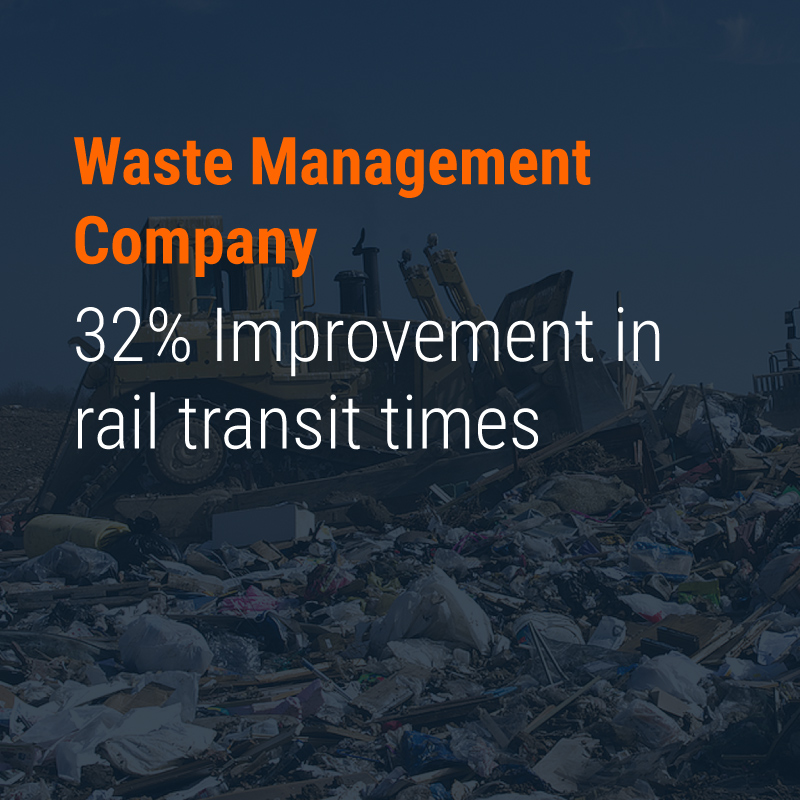32% Improvement in rail transit times (CS160a)
How a waste management company achieved a 32% improvement in rail transit time
This story is for executives who:
-
Are reliant on a partnership with any of North America’s Class 1 railroads
-
Don’t believe that it’s possible to broker a better deal from the rail companies they depend on
-
Want to break down barriers and improve rail The results transit times
The Challenge
The waste management company had been experiencing problems meeting scheduled cycle times since starting a unit train service from New Jersey to their single-carrier captive landfill in Kentucky. In the first nine months of operating, unit trains were running an average of 41.8 hours longer in transit than scheduled.
This inconsistent service had created a shortage of waste containers for distribution resulting in daily revenue loss. Various attempts to compensate for longer train run times meant that planning had become a day-to-day activity. The client soon found their cost of doing business exceeded their plan and they could not grow the business as forecasted.
When attempts to resolve the issue using in-house resource failed, the company’s PE owners asked Maine Pointe to help them get the rail carrier’s trains to perform to schedule.
Changing rail carrier perceptions
Maine Pointe quickly established that attempts to resolve the situation had taken place through the rail carrier’s sales and marketing team and a dedicated customer service person. Our client’s company had not had any direct communication with the Class 1’s senior executives.
Maine Pointe broke through this barrier, taking their concerns to the right people at the right level to:
- Dispel the rail carrier’s belief that the waste services company’s trains were “only trash” and required a higher level of discipline in the operation than was being delivered.
- Educate the rail carrier on the environmental requirements of doing business in the area of waste management.
- Demonstrate to the rail carrier that performance to operating schedules was not only critical to the waste management company’s success but also rail performance was reducing the rail carrier’s profit margin and adding to train congestion in a critical rail corridor.
The relationship between our client and their service provider has been energized and the communication barrier broken down creating a solid platform for continued successful collaboration and business expansion.
The Results
Maine Pointe approached our client’s Class 1 rail carrier in a spirit of partnership. We addressed communication issues, broke down barriers and established clear processes for effective and sustainable collaboration. Results:
- Improved transit time by 32%
- Optimized asset utilization
- Reduced railroad operating costs
- Improved reliability
Lessons learned for other executives
- Companies in a captive railroad situation can get incentives and service-level commitments from the railroads
- Improved performance and achievement of schedule is a win-win situation
- Explaining this and illustrating the value to the carrier at the right level is the key to changing perceptions throughout their organization
Success Story: 32% Improvement in Rail Transit Times (CS160a) 

